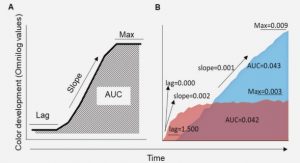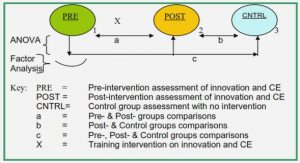Get Complete Project Material File(s) Now! »
CHAPTER 3 MEDICO-LEGAL AND CLINICAL ASPECTS OF PSYCHIATRY AND PSYCHOLOGY
« It is with disease of the mind, as with those of the body; we are half dead before we understand our disorder, and half cured when we do. »1
INTRODUCTION
Mental or psychiatric illness is a vast subject, however, one which is of great importance in legal matters, particularly those with regard to medical law, criminal law and the law of delict.2 The various conditions range from a mild anxiety state3 to which we are all prone – the full blown-picture of insanity. Compartmentalising of mental illness is difficult but can be explained under the headings of anxiety disorders; psychoneurosis4 and psychosis,5 which is divided into functional psychosis (including bipolar disorder and schizophrenia6) and the organic types of psychosis. In addition to frank psychiatric illness, one must also consider personality disorders, for example antisocial personality disorder.7 These disorders are disorders of the mind that interfere substantially with a person’s ability to cope with life on a daily basis, which becomes clear in the discussion below. As previously mentioned, mental illness has a history as long as history exists. It also has a history of misunderstanding, stigma and discrimination, all of which are still significantly present even in well educated societies and all of which can be reduced by research, information and education.8
Fortunately the twentieth century brought with it the development of amazing advances and achievements in research, technology, medicine, neurosciences, psychiatry and psychology. By the mid-century, psychiatry and psychology was in full swing and literally hundreds of psychotherapeutic methods evolved. The 1950’s saw the introduction of the first reference manual to assist physicians in diagnosing mental illness. It was also the beginning of the clinical application of psychotropic drugs for the treatment of mental illness.9 Scientific research still continues its search for causes and cures for mental illness, legal acts are proposed by supporters to deal with the many issues surrounding it as well as the issues surrounding moral and ethical debates pertaining to treatment and mistreatment of those diagnosed with mental illness worldwide.10
The aim of this chapter is to provide a basic, condensed, general overview of the psychiatric and psychology professions; the concepts of psychotherapy and psychoanalysis and an explanation of the concepts of mental or psychiatric illness, mental disorder and disease of mind. Furthermore it provides a discussion of the diagnosis and classification of diseases in a clinical and forensic context as well as the biological approaches to therapy. In addition, aspects pertaining to forensic psychiatry and psychology are discussed. Aspects regarding the mentally ill offender are also included. A background study of these clinical aspects of psychiatry and psychology is required to ensure clarification and exposition of the constitutional, medico-legal, liability and ethical issues surrounding the complex nature of this topic, which are dealt with in the following chapters.
THE FOUR « PSYCHS »: PSYCHIATRY, PSYCHOLOGY, PSYCHOTHERAPY AND PSYCHOANALYSIS
Introductory remarks
All four of the above terms describe different approaches to understand and help individuals with psychological and emotional (mental) problems. There is a lot of overlap between these terms and sometimes the work done by the same highly qualified therapist can be described by several of these terms. It is therefore not surprising that people confuse them. Each of these terms are described in the paragraphs below in order to find a clear understanding and clarification of what psychology, psychiatry and its subsequent healing practices entail.11
Psychiatry
Psychiatry in general
Psychiatry is defined as: « The branch of medicine [medical specialty] devoted to the diagnosis, classification, treatment, and prevention of mental disorders. »12 After completing the medical undergraduate degree (usually a MB Ch.B/MB B. Ch.) the aspiring psychiatrist has to complete a one-year internship in a general hospital. After at least two years of further general practice the doctor enters into a four-year registrar training programme under the auspices of an academic department of psychiatry, while working full time in a state psychiatric hospital. The registrar works during the course of the four years in six-month rotations in various specialised areas of psychiatry, such as acute and emerge psychiatry, child and adolescent psychiatry, old age psychiatry, neuropsychiatry, psychotherapy units as well as liaison and consultation for the medically ill.13 Psychiatrists are further required to register with the Health Professions Council of South Africa. According to section 17 of the Health Professions Act:
The psychiatrist
The Mental Health Care Act19 defines a psychiatrist as a « mental health care practitioner »20 who has been trained to provide prescribed mental health care, treatment and rehabilitation services and registered as such in terms of the Health Professions Act.21 Carstens22 regards this definition as very vague and generic and states that it does not offer a full perspective of the role and function of psychiatrists. In this regard he refers to Kaliski23 who states that:
Psychiatrists are primarily orientated to assess and treat mental disorders (as described in the DSM-IV), and in the first instance should be consulted to exclude the presence of these disorders, or comment on treatment strategies. Often the psychiatrist will be able to comment on so -called normal behaviour in various contexts, especially as it pertains to the disorders under discussion. Generally psychiatrists use the same methods of examination as other medical specialists (including blood tests, brain scans, cerebro-spinal fluid tests EEGs etc and prefer to use biological treatments (together with psychotherapy). Many psychiatrists have additional expertise in the various psychotherapies (such as psychoanalysis, cognitive behavioural therapy etc), or in sub -specialities such as child psychiatry. It is always crucial to ascertain each psychiatrist’s actual area of expertise.24
Forensic psychiatry
Forensic psychiatry operates at the interface of two disparate disciplines, namely law and psychiatry. Although most cases in forensic psychiatric practice produce little conflict, functioning at the interface of these two disciplines can lead to confusion and ethical dilemmas.25 Forensic psychiatry can be defined as follows:26
Forensic psychiatry is a subspecialty of psychiatry in which scientific and clinical expertise is applied to legal issues in legal contexts embracing civil, criminal, correctional or legislative matters; forensic psychiatry should be practiced in accordance with guidelines and ethical principles enunciated by the profession of psychiatry.27
Most forensic psychiatrists do not see themselves as functioning outside of their medical and psychiatric roles. They see themselves (and probably generally are perceived) as utilising their medical and psychiatric skills and techniques.28 Controversy exists regarding to whom the forensic psychiatrist owes a duty. This problem is part due to the fact that a standard doctor-patient relationship does not apply.29 Stone30 believes that psychiatry enters an ethical morass when it leaves the clinical situation as in the case of forensic psychiatry.
Psychology
Psychology in general
Psychology is defined as: « The scientific study of the nature, functions, and phenomena of behaviour32 and mental experience. The etymology of the word [psychology] implies that it is simply the study of the mind, but much of modern psychology focuses on behaviour rather than the mind, and some aspects of psychology have little to do with the mind. »33 In order to qualify as a psychologist, an individual is required to complete a university undergraduate degree in social sciences with a three-year major in Psychology. Thereafter they have to do a one-year Honours degree, followed by a Masters Degree in Psychology. At the Honours level, students begin to specialise in particular areas, for example, counselling,34 clinical35 and educational and industrial psychology.36 A recent requirement is a one-year community placement before the person can practise as a fully qualified psychologist.37 Psychologists are (as in the case of psychiatrists) required to register with the Health Professions Council of South Africa.38
To study psychology (the mind, behaviour and the relationship between them) is to seek to understand how humans and other organisms think, learn, perceive, feel, act, interact with others and even understand themselves. Although people are the predominant focus of psychological theory and research, many psychologists study a broad array of other organisms (from single-celled creatures to mammals). Sometimes, these studies are ends in themselves, and sometimes they are ways to investigate structures and phenomena, which would be impossible, impractical, or unethical to study in humans.39 Because psychology encompasses both human and social issues as well as biological and physiological ones, psychology is categorised as both a natural and a social science.40 As a natural science, psychology
The psychiatrist
The Mental Health Care Act19 defines a psychiatrist as a « mental health care practitioner »20 who has been trained to provide prescribed mental health care, treatment and rehabilitation services and registered as such in terms of the Health Professions Act.21 Carstens22 regards this definition as very vague and generic and states that it does not offer a full perspective of the role and function of psychiatrists. In this regard he refers to Kaliski23 who states that:
Psychiatrists are primarily orientated to assess and treat mental disorders (as described in the DSM-IV), and in the first instance should be consulted to exclude the presence of these disorders, or comment on treatment strategies. Often the psychiatrist will be able to comment on so -called normal behaviour in various contexts, especially as it pertains to the disorders under discussion. Generally psychiatrists use the same methods of examination as other medical specialists (including blood tests, brain scans, cerebro-spinal fluid tests EEGs etc and prefer to use biological treatments (together with psychotherapy). Many psychiatrists have additional expertise in the various psychotherapies (such as psychoanalysis, cognitivebehavioural therapy etc), or in sub -specialities such as child psychiatry. It is always crucial to ascertain each psychiatrist’s actual area of expertise.24
Forensic psychiatry
Forensic psychiatry operates at the interface of two disparate disciplines, namely law and psychiatry. Although most cases in forensic psychiatric practice produce little conflict, functioning at the interface of these two disciplines can lead to confusion and ethical dilemmas.25 Forensic psychiatry can be defined as follows:26
psychiatry is a subspecialty of psychiatry in which scientific and clinical expertise is applied to legal issues in legal contexts embracing civil, criminal, correctional or legislative matters; forensic psychiatry should be practiced in accordance with guidelines and ethical principles enunciated by the profession of psychiatry.27
Most forensic psychiatrists do not see themselves as functioning outside of their medical and psychiatric roles. They see themselves (and probably generally are perceived) as utilising their medical and psychiatric skills and techniques.28 Controversy exists regarding to whom the forensic psychiatrist owes a duty. This problem is part due to the fact that a standard doctor-patient relationship does not apply.29 Stone30 believes that psychiatry enters an ethical morass when it leaves the clinical situation as in the case of forensic psychiatry.31
Psychology
Psychology in general
Psychology is defined as: « The scientific study of the nature, functions, and phenomena of behaviour32 and mental experience. The etymology of the word [psychology] implies that it is simply the study of the mind, but much of modern psychology focuses on behaviour rather than the mind, and some aspects of psychology have little to do with the mind. »33 In order to qualify as a psychologist, an individual is required to complete a university undergraduate degree in social sciences with a three-year major in Psychology. Thereafter they have to do a one-year Honours degree, followed by a Masters Degree in Psychology. At the Honours level, students begin to specialise in particular areas, for example, counselling,34 clinical35 and educational and industrial psychology.36 A recent requirement is a one-year community placement before the person can practise as a fully qualified psychologist.37 Psychologists are (as in the case of psychiatrists) required to register with the Health Professions Council of South Africa.38
CHAPTER 1: INTRODUCTION
1.1 BACKGROUND
1.2 THE INTERFACE BETWEEN LAW, MEDICINE, PSYCHIATRY AND PSYCHOLOGY
1.3 PURPOSE, PROBLEM STATEMENT AND MOTIVATION
1.4 HYPOTHESIS
1.5 CHOICE OF LEGAL SYSTEMS
1.6 STRUCTURE AND OVERVIEW OF THE THESIS
1.7 RESEARCH APPROACH AND METHODOLOGY
1.8 CONCLUSION
PART 1: HISTORICAL, CLINICAL AND ETHICAL ASPECTS CONCERNING THE PSYCHIATRIC AND PSYCHOLOGY PROFESSIONS AND THE MENTALLY DISORDERED PATIENT
CHAPTER 2: MEDICINE, PSYCHIATRY AND PSYCHOLOGY: A HISTORICAL SURVEY
2.1 INTRODUCTION
2.2 THE SIGNIFICANCE OF A HISTORICAL SURVEY
2.3 THE ORIGIN AND DEVELOPMENT OF MEDICINE AND MADNESS
2.4 THE HISTORY OF PSYCHIATRY AND PSYCHOLOGY 72
2.5 CONCLUSION
CHAPTER 3: MEDICO-LEGAL AND CLINICAL ASPECTS OF PSYCHIATRY AND PSYCHOLOGY
3.1 INTRODUCTION
3.2 THE FOUR « PSYCHS »: PSYCHIATRY, PSYCHOLOGY, PSYCHOTHERAPY AND PSYCHOANALYSIS
3.3 THE CONCEPT OF MENTAL DISORDER / ILLNESS
3.4 DIAGNOSIS AND CLASSIFICATION OF MENTAL DISORDERS
3.5 BIOLOGICAL APPROACHES TO THERAPY
3.6 THE MENTALLY DISORDERED OFFENDER
3.7 CONCLUSION
CHAPTER 4: THE REGULATION OF THE PSYCHIATRIC AND PSYCHOLOGY PROFESSIONS
4.1 INTRODUCTION
4.2 THE CONCEPTS OF « PROFESSION » AND « PROFESSIONALISM » IN MEDICINE: AN OVERVIEW
4.3 THE STATUTORY REGULATION OF THE PSYCHIATRIC AND
PSYCHOLOGY PROFESSIONS:
4.4 THE ETHICAL FRAMEWORK FOR THE REGULATION OF THE PSYCHIATRIC AND PSYCHOLOGY PROFESSIONS
4.5 THE THERAPIST-PATIENT RELATIONSHIP AND THE STANDARD OF CARE
4.6 THE TRADITIONAL HEALTH PRACTITIONERS ACT
4.7 ETHICAL DECISION-MAKING IN PSYCHIATRY AND PSYCHOLOGY
4.8 THE ROLE OF THE PSYCHIATRIST AND PSYCHOLOGIST IN COURT
4.9 ETHICAL DECISION-MAKING IN FORENSIC PSYCHIATRY AND PSYCHOLOGY
4.10 CONCLUSION
PART 2: MEDICO-LEGAL ASPECTS CONCERNING THE PSYCHIATRIC AND PSYCHOLOGY PROFESSIONS AND THE MENTALLY DISORDERED PATIENT: THE POSITION IN SOUTH-AFRICA
CHAPTER 5: THE CONSTITUTIONAL IMPERATIVE, COMMON LAW POSITION AND DOMESTIC LEGISLATION IN CONTEXT OF MENTAL HEALTH
5.1 INTRODUCTION
5.2 THE ORIGIN AND CONCEPT OF HUMAN RIGHTS
5.3 SECTION 36 OF THE CONSTITUTION: LIMITATION OF RIGHTS
5.4 SECTION 10 OF THE CONSTITUTION: HUMAN DIGNITY
5.5 SECTION 11 OF THE CONSTITUTION: THE RIGHT TO LIFE
5.6 SECTION 12(1) OF THE CONSTITUTION: FREEDOM AND SECURITY OF THE PERSON AND SECTION 35: ARRESTED, DETAINED AND ACCUSED
5.7 SECTION 28 OF THE CONSTITUTION: THE PROTECTION OF CHILDREN’S RIGHTS
5.8 SECTION 12(2) OF THE CONSTITUTION: FREEDOM AND SECURITY OF THE PERSON
5.9 SECTION 14 OF THE CONSTITUTION: THE RIGHT TO PRIVACY 254
5.10 SECTION 9 OF THE CONSTITUTION: THE EQUALITY CLAUSE 261
5.11 SECTION 15 OF THE CONSTITUTION: CONSCIENCE, RELIGION, THOUGHT, BELIEF AND OPINION
5.12 THE CONSTITUTIONAL FRAMEWORK PERTAINING TO MEDICAL RESEARCH AND EXPERIMENTATION
5.13 ENFORCING SOCIO-ECONOMIC RIGHTS
5.14 SECTION 27 OF THE CONSTITUTION: ACCESS TO HEALTH CARE SERVICES
5.15 SECTIONS 30 AND 31 OF THE CONSTITUTION: LANGUAGE, CULTURE AND RELIGION
5.16 CONCLUSION
CHAPTER 6: PROFESSIONAL MEDICAL MALPRACTICE: THE LIABILITY OF THE PSYCHIATRIST AND PSYCHOLOGIST
6.1 INTRODUCTION
6.2 HISTORICAL PERSPECTIVES OF THE ORIGIN AND DEVELOPMENT
OF MEDICAL MALPRACTICE
6.3 THE LEGAL BASES FOR MALPRACTICE LIABILITY
6.4 PROFESSIONAL MEDICAL NEGLIGENCE
6.5 DISCIPLINARY PROCEEDINGS AGAINST PRACTITIONERS REGISTERED
6.6 CONCLUSION
CHAPTER 7: CONCLUSION
7.1 SCOPE AND PURPOSE
7.2 SUMMARY: OVERVIEW OF CHAPTERS
7.3 CONCLUSIVE REMARKS
GET THE COMPLETE PROJECT
LAW, PSYCHIATRY AND PSYCHOLOGY: A SELECTION OF CONSTITUTIONAL, MEDICO-LEGAL AND LIABILITY ISSUES






